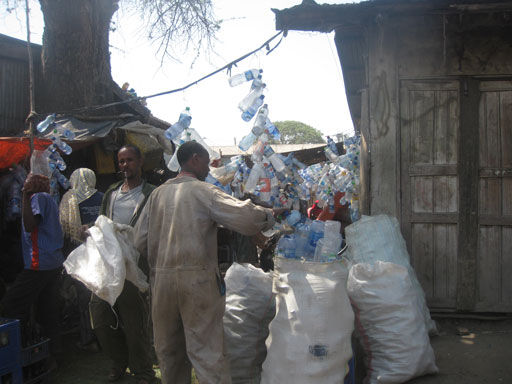8.3 Waste reuse
Reuse can be defined as using a waste product without further transformation and without changing its shape or original nature. This is the second option in the waste hierarchy. Different types of solid wastes can be reused, such as bottles, old clothes, books and anything else that is used again for a similar purpose to that originally intended. Reuse means that less solid waste is produced. It brings other benefits by taking useful products discarded by those who no longer want them and passing them to those who do.
Suppose you are attending a meeting of a women’s development group and one of the participants asked you to explain what is meant by reusing waste. How would you explain the concept?
You could first explain that reuse means using something without changing its shape or original nature. You could then list some examples, such as bottles that can be refilled, old clothes that can be passed to neighbours and carrier bags that can be used more than once.
The informal waste management sector does a lot to promote reuse and recycling. Individuals (known as korales) buy reusable bottles and jars and recyclable materials from householders and sell them on to small shopkeepers and merchants (Figure 8.2). Bjerkli (2005) estimated that around 5000 korales were working in Addis Ababa.

8.2 Waste reduction
